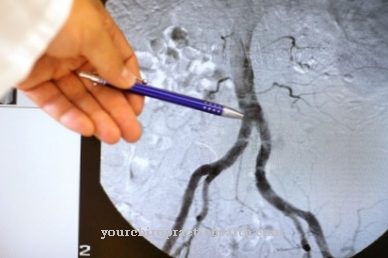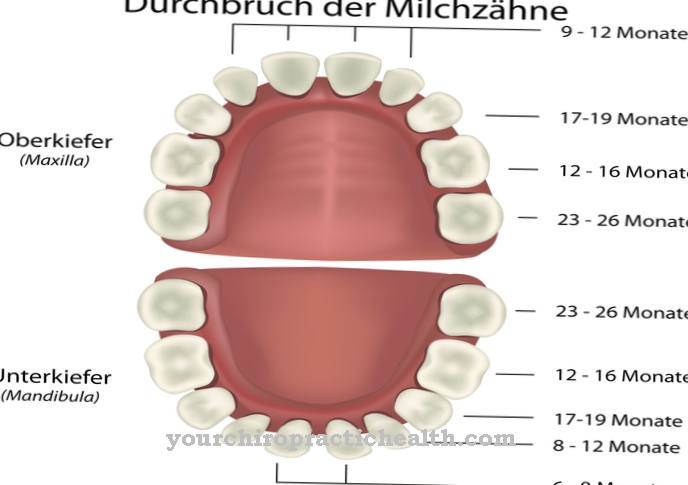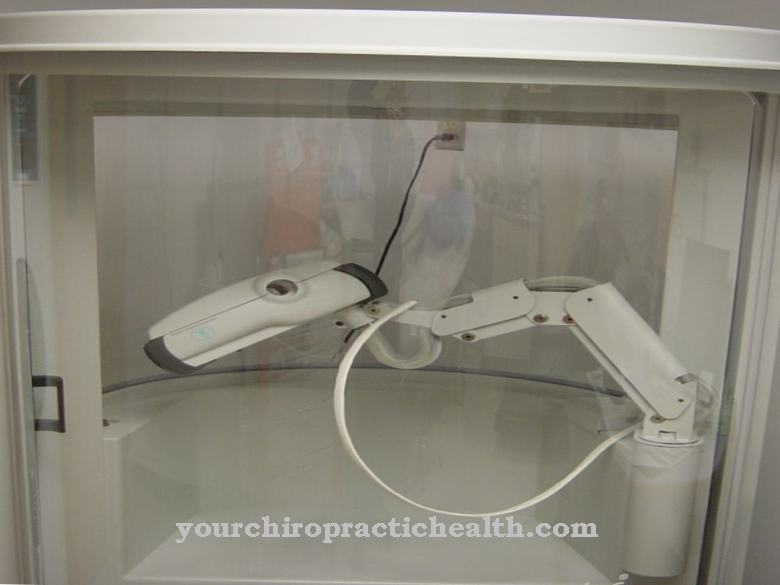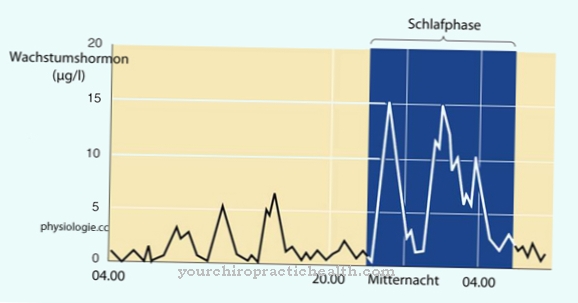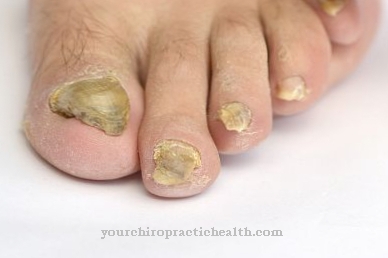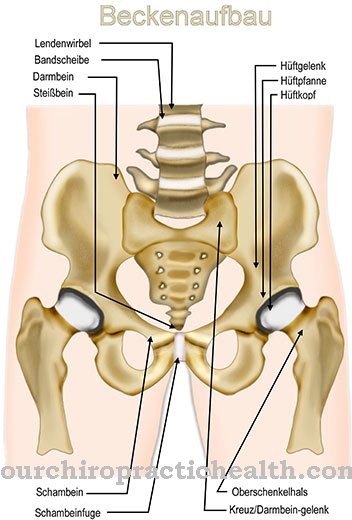The Drug psychosis is a form of psychosis that is triggered by various mind-altering substances. A distinction is made between the specific form of psychosis according to its cause, for example alcohol, LSD or cocaine, with specific symptoms. Therapy consists of abandoning the triggering substance and treating it based on the symptoms.
What is drug psychosis?

© Sangoiri - stock.adobe.com
Drug psychosis is one of the severe psychological disorders in which a temporary or permanent loss of reality occurs. It is important to distinguish between symptoms that are triggered by drug use and during it, and non-organic psychotic disorders, the causes of which have not yet been researched.
There are six forms of drug psychosis: schizophrenic form, predominantly delusional, predominantly hallucinatory, predominantly polymorphic and predominantly affective.
In the form of schizophrenia, acoustic hallucinations occur in particular; the patient rarely suffers from visual hallucinations. The delusional form is, as the name suggests, characterized by delusions, in hallucinatory psychosis the patient experiences optical, acoustic or olfactory phenomena that affect the sense of smell and gustatory phenomena that affect the sense of taste.
Affective psychoses affect the state of mind and lead to manias or depression. Polymorphic psychoses are multifaceted and combined can affect all areas.
causes
The causes of drug psychosis are psychoactive substances like alcohol and cocaine. These can trigger existing psychoses, revive psychoses that have subsided or cause new psychoses. But other forms of drugs can also trigger psychosis.
Symptoms, ailments & signs
In the worst case scenario, drug psychosis can lead to death. This case usually only occurs after the person has overdosed on a particular drug. The complaints and symptoms always have a negative effect on the patient's health and can cause permanent damage.
First and foremost, patients with drug psychosis suffer from strong hallucinations and thus also from delusions. This often leads to severe social difficulties and furthermore to injuries. Likewise, patients suffer from personality disorders that can hurt or endanger someone else.
If a large amount of drugs has been consumed, [[impaired consciousness] can also occur, which can lead to a loss of consciousness. In some cases, people fall into a coma. Sleep disorders and anxiety disorders continue to occur, making most people look irritable or aggressive.
Many patients see white mice or spiders or hear voices in their heads that do not exist. It can also lead to thoughts of suicide or, in the worst case, to suicide. The drug psychosis may also reduce the patient's life expectancy.
You can find your medication here
➔ Medicines to calm down and strengthen nervesDiagnosis & course
Psychoses are shown by the symptoms that occur, but must be clearly diagnosed by the treating doctor and differentiated from similar diseases. These include psychotic states that are not triggered by chemical substances, intellectual disabilities and neuroses, personality disorders such as borderline syndrome.
Once the psychotic state has been established, the exact cause must be found in order to be able to treat it accordingly. The main causes of drug psychosis are alcohol and cocaine. In alcohol psychosis, the person concerned suffers from delusional perceptions of spiders or white mice and voices in their head, violent excitement, anxiety, sleep disorders and Korsakoff's syndrome, a severe memory disorder that also affects the brain.
Also delusional states, for example the delusional conviction of the partner's infidelity, are possible.
Cocaine psychosis is characterized by paranoid states, acoustic, optical and sensitive perception disorders and the belief that insects are under the skin. Drug psychoses can subside quickly or persist for longer, so the chances of recovery are not foreseeable.
Complications
Drug psychosis can be triggered by severe substance abuse. It is not only hard drugs such as heroin, cocaine, and opium that cause psychosis, but also lighter drugs such as designer drugs, hashish, LSD, and in extreme cases even psychoactive mushrooms, alcohol and tobacco. A doctor must be consulted if drug psychosis is suspected. If not treated, there is a risk of endangering others and yourself.
The drug problem specialists are psychiatrists. If necessary, they initiate drug treatments, hospital stays and classic drug therapies. The different drug psychoses include schizophrenic, hallucinatory, polymorphic, delusional and affective forms that can be diagnosed using test methods.
Often times, people with drug psychosis are stubborn and pretend to be healthy. Then they have to be convinced by professionals or family members to seek treatment. If there has already been an acute risk to yourself or others, or if it is likely to be imminent, the Mentally Ill Act, or PsychKG for short, can be applied, which is regulated differently in each federal state.
On the basis of this, judges and, in emergencies, doctors decide on instruction and coercive measures. Drug psychoses either occur once, repeat themselves or are even irreversible. If drug psychosis breaks out again later, a doctor or clinic should be consulted immediately. Patients should not discontinue medication or drug therapy prematurely to avoid relapses into psychosis or drug addiction.
When should you go to the doctor?
Anyone who notices personality changes or other symptoms of psychosis in themselves or others should immediately consult a doctor or psychotherapist. Medical or psychological advice is advisable at the first signs of a change in occurrence. Medical advice is recommended at the latest when the sick person endangers himself or third parties. In general, drug psychosis should be diagnosed and treated as soon as possible.
In particular, risk groups such as drug addicts or people with previous mental illnesses should pay attention to physical and mental changes. Anyone who suspects signs of drug psychosis in third parties should seek professional help immediately. Warning signs that require an immediate hospital stay include hallucinations, neuroses, self-harm, and paranoid states.
If you notice one or more of these symptoms, you may need to be referred to a mental health facility. If there has already been a risk to oneself or others, a judge must be called in, who can initiate appropriate measures. In addition, the family members of the person concerned should be informed about the condition of the person concerned.
Doctors & therapists in your area
Treatment & Therapy
The treatment of drug psychosis consists initially in abstinence. The person concerned should not only use the triggering substance, but also all substances that are harmful to the body, in order to enable organs and brain to regenerate. This can help, but success is not guaranteed.
The treatment of drug psychosis is then carried out like the therapy of other forms of psychosis with medication, psychotherapy, occupational therapy and sociotherapeutic measures. The most important drugs are antipsychotic and sedating neuroleptics or, depending on the symptoms, antidepressants. These are especially important in affective disorders in order to avoid excessive depressive phases and severe manias. Lithium therapy tries to avoid new phases of the illness.
The additional psychotherapeutic measures should only be carried out in stable patients in order to avoid the patient becoming unstable. If the psychotic states are not acute, the therapeutic intervention can also be carried out in psychiatric clinics, where conversation therapy, neurological treatment and the handling of interpersonal and social difficulties are possible at the same time. As a rule, inpatient therapy is carried out as psychosis rehabilitation.
Sociotherapeutic interventions include measures to keep the job or hiring in a sheltered workplace, offers of assisted living and regular support by a social worker. The primary purpose of occupational therapy is to restore the workforce and enable the patient to regain a daily structure. Carrying out a load test is mandatory.
Outlook & forecast
The prognosis of drug psychosis depends on various factors. The intensity and duration of drug use are critical to lasting recovery. If the patient uses the drugs rarely or once, the symptoms of the psychosis often disappear in parallel with the drug's effect. Then there is a freedom from symptoms that is permanent.
With regular drug use, drug and psychotherapeutic treatment has a good chance of being cured. The prognosis improves once drug use is stopped. The remaining symptoms of the psychosis are then treated with psychotherapy.
If there is an existing drug addiction, the prognosis is unfavorable. The addiction is given priority. Often times the body needs to be detoxified. In some cases, the patient needs a replacement drug because drug withdrawal poses too great a health risk. It must be checked individually whether it is possible to cure the drug psychosis in these patients. The prognosis also worsens as soon as there is another psychological or organic illness.
In particular, personality, anxiety or affective disorders as well as brain damage are considered difficult in connection with drug psychosis. Achieving the greatest possible stability can be set as the treatment goal if a cure appears hopeless. Many patients must undergo long-term therapy in order to improve their well-being.
You can find your medication here
➔ Medicines to calm down and strengthen nervesprevention
In order to avoid the occurrence of drug psychosis, there is only one preventive measure: the renouncement of mind-altering substances or alcohol consumption in non-harmful, considered normal, measures. In particular, patients who belong to a special psychosis risk group due to mental instability should refrain from taking these substances.
You can do that yourself
An acute outbreak of an exogenous psychosis can be countered by immediately withdrawing the substance in question. If the cognitive disorders or delusions were induced by alcohol, then under no circumstances continue to drink alcohol. The same goes for cannabis, MDMA, or cocaine. Any increase in dose will also increase symptoms. This also and especially applies to the following days and when the psychotic experience has subsided.
If possible, the person concerned should be calmed down or led to a quiet place, under no circumstances should he be left alone. Often drug abuse is associated with dehydration, so it is important to drink water or tea - but never sugary or stimulating drinks such as coffee or energy drinks. If valerian tincture or tablets are on hand, they should be used.
Following a psychotic experience with addictive substances, it is essential to avoid them in everyday life. The places or the circle of friends associated with the intake of the corresponding agent should also be avoided for the time being. Instead, rest is advisable and a daily routine that is as stringently organized as possible: Rhythm must be created, for example through consistent wake up and bedtime times.
Short daily meditation exercises can calm the mind and also strengthen body awareness. Everyday rituals and mindfulness practices have a centering effect.

.jpg)

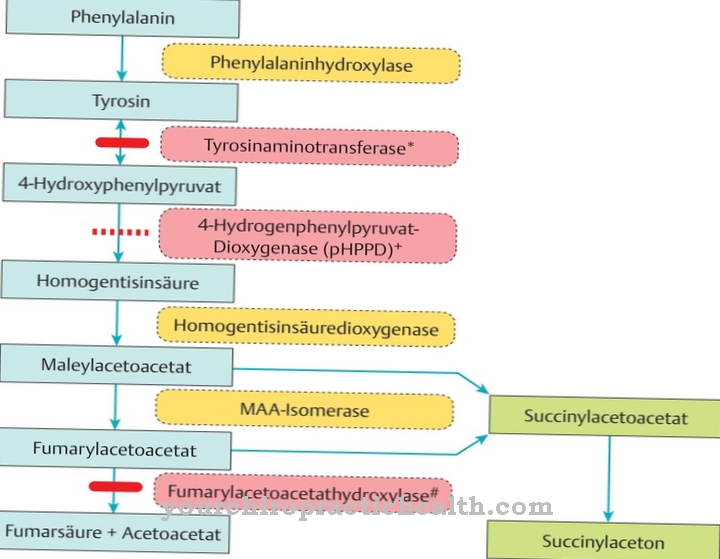
.jpg)

